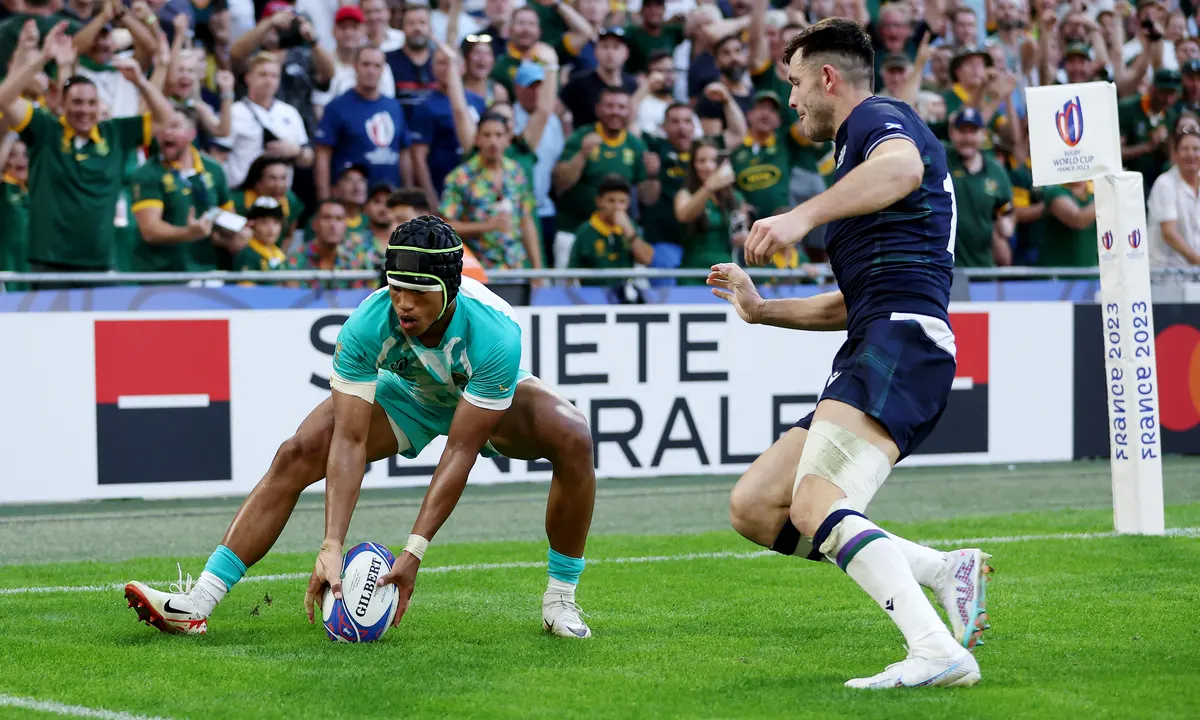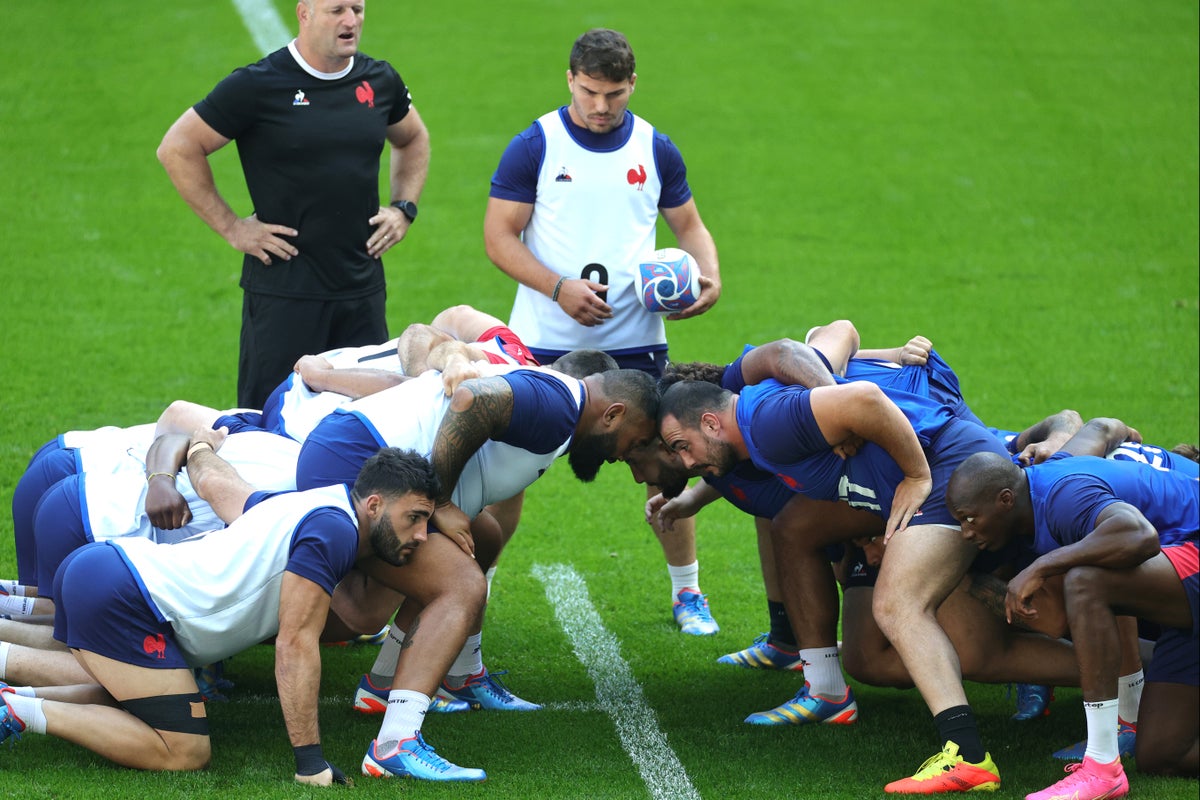Cheslin Kolbe and Kurt-Lee Arendse have been chosen to occupy the wing positions for the South African national rugby team as they prepare for their title defense at the Rugby World Cup, taking on Scotland. This tactical decision is part of South Africa Coach Jacques Nienaber’s strategic approach. He emphasized that while there was considerable excitement surrounding the Springboks’ upcoming match against Ireland, their immediate focus is squarely on the forthcoming encounter with Scotland.
Incorporating Kolbe as the left-wing player for the Pool B match in Marseille constitutes one of four key adjustments to the starting lineup. This lineup had previously secured a remarkable victory over New Zealand with a record-breaking score of 35-7 at Twickenham just a fortnight ago.
Jasper Wiese has been entrusted with the No. 8 role, displacing the experienced Duane Vermeulen, who will be on the bench alongside Willie le Roux. Furthermore, Damian de Allende and Jesse Kriel will feature in the starting 15, taking the positions of Andre Esterhuizen and Canan Moodie. It’s important to note that Moodie was initially expected to maintain his role as an outside center but was sidelined due to a hamstring injury.
South Africa’s head coach, Nienaber, made the significant decision to unveil the team lineup two days ahead of schedule, explaining, “By getting it out of the way, we can just focus on preparing for Scotland.” This demonstrates their commitment to thorough preparations for the upcoming match.
The inclusion of Jasper Wiese as the sole change in the forward pack is noteworthy, as the other seven starters played pivotal roles in the 2019 Rugby World Cup final. Franco Mostert, along with Eben Etzebeth, will continue to occupy the second-row positions. Captain Siya Kolisi, who recently returned from knee surgery, will start his third consecutive game after contributing to South Africa’s warm-up victories against Wales and the All Blacks.
Another point of interest is the decision to split the bench with six forwards and two backs, deviating from the unconventional 7-1 configuration used against New Zealand at Twickenham.
The match against Scotland will also mark a significant milestone for scrumhalf Faf de Klerk, who is set to make his 50th test appearance. De Klerk will partner with Manie Libbok, who continues as South Africa’s first-choice No. 10 in the absence of Handre Pollard due to injury.

Nienaber acknowledges the quality of the Scottish team, highlighting their strong pack and skilled backs, along with their high level of intensity. To counter this, he underscores the importance of South Africa being sharp in both attack and defense in the upcoming match.
In a surprising twist, wing Makazole Mapimpi, who was a try-scorer in the World Cup final against England four years ago, did not make the 23-man squad for this match. However, it’s important to note that South Africa’s coaching staff, led by Rassie Erasmus, has made frequent lineup changes during their preparations, indicating their intention to utilize the full depth of their squad in what promises to be a challenging pool stage. Additionally, Erasmus, who was the head coach during the Springboks’ successful World Cup campaign in 2019, continues to play a crucial role alongside Nienaber.
Nienaber stressed the dynamic nature of the World Cup, stating, “All the teams have improved since 2019, but World Cups are a bit different.” He elaborated on the need for adaptability, emphasizing that teams must have the ability to score points, unlike in 2019 when a solid defense and a strong kicking game were often sufficient.
While he acknowledges that the Springboks may not be the finished product just yet, they are diligently working towards that goal. As the Rugby World Cup kicks off, South Africa will be looking to build on their past success and showcase their ability to adapt and excel on the global stage.
